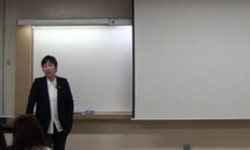The effects of Gami-Jeonggi-San (GJS) on proliferation of human endothelial cell (HUV-EC-C) were investigated using a flow cytometry and a quantitative RT-PCR analysis of gene expression. An accumulation of cells at G_(1) phase of the cell cycle was f...
http://chineseinput.net/에서 pinyin(병음)방식으로 중국어를 변환할 수 있습니다.
변환된 중국어를 복사하여 사용하시면 됩니다.
- 中文 을 입력하시려면 zhongwen을 입력하시고 space를누르시면됩니다.
- 北京 을 입력하시려면 beijing을 입력하시고 space를 누르시면 됩니다.
Inhibition of human endothelial cell proliferation by Gami-Jeonggi-San (Jiawei-Zhenqi-San) is accompanied by transcriptional up-regulation of p53 and Waf1 tumor suppressor genes
한글로보기https://www.riss.kr/link?id=A35491366
-
저자
Moon, Sang-Kwan (Department of Cirulatory Internal Medicine, College of Oriental Medicine, Kyung Hee University) ; Jin, Hyung-Seok (Department of Cirulatory Internal Medicine, College of Oriental Medicine, Kyung Hee University) ; Ko, Chang-Nam (Department of Cirulatory Internal Medicine, College of Oriental Medicine, Kyung Hee University) ; Kim, Young-Suk (Department of Cirulatory Internal Medicine, College of Oriental Medicine, Kyung Hee University) ; Bae, Hyung-Sup (Department of Cirulatory Internal Medicine, College of Oriental Medicine, Kyung Hee University) ; Lee, Kyung-Sup (Department of Cirulatory Internal Medicine, College of Oriental Medicine, Kyung Hee University) ; Cho, Ki-Ho (Department of Cirulatory Internal Medicine, College of Oriental Medicine, Kyung Hee University)
- 발행기관
- 학술지명
- 권호사항
-
발행연도
2006
-
작성언어
English
- 주제어
-
KDC
001.305
-
자료형태
학술저널
-
수록면
150-155(6쪽)
- 제공처
- 소장기관
-
0
상세조회 -
0
다운로드
부가정보
다국어 초록 (Multilingual Abstract)
The effects of Gami-Jeonggi-San (GJS) on proliferation of human endothelial cell (HUV-EC-C) were investigated using a flow cytometry and a quantitative RT-PCR analysis of gene expression. An accumulation of cells at G_(1) phase of the cell cycle was found at 72h after treatment (10 μl/ml) while no detectable reduction of PCNA expression was recognized. To elucidate that the cell cycle inhibitory effect of GJS stems from its capability of transcriptional regulation of the cell cycle-controlling genes, we investigated mRNA expression of p53, Waf1, PCNA, Cyclin D1, Cdc2, Histone H3, c-Myc, and c-Fos. Significantly elevated mRNA levels of the p53 tumor suppressor gene and its down-stream mediator gene, Waf1, whose increased expressions were known to trigger G_(1) cell cycle arrest, were observed. In contrast, a marked reduction of two early G_(1)-specific, cell cycle stimulating genes, c-Myc and c-Fos, were found at 24h after treatment, while there were no detectable changes in expressions of G_(1)-S or G_(2)-M transition-related genes, indicating the G_(1) specificity of GJS effect on the cell cycle. These results suggest that the pharmacological effects of GJS might be derived in part from inhibition of cellular proliferation of human endothelial cells, and that GJS inhibition of the cell cycle might stem from its regulatory capability on the transcription of the cell cycle-controlling genes, including p53 and Waf1 tumor suppressor genes.
동일학술지(권/호) 다른 논문
-
- KYUNG HEE UNIVERSITY MEDICAL CENTER
- Baek, Yong Hyeon
- 2006
-
The Application fo the Six Sigma Program for the Quality Management of the PACS
- KYUNG HEE UNIVERSITY MEDICAL CENTER
- Kang, Jin Oh
- 2006
-
Achieving immediate function with provisional prostheses after implant placement
- KYUNG HEE UNIVERSITY MEDICAL CENTER
- Kwon, Kung-Rock
- 2006
-
- KYUNG HEE UNIVERSITY MEDICAL CENTER
- Park, Young-Guk
- 2005




 RISS
RISS







